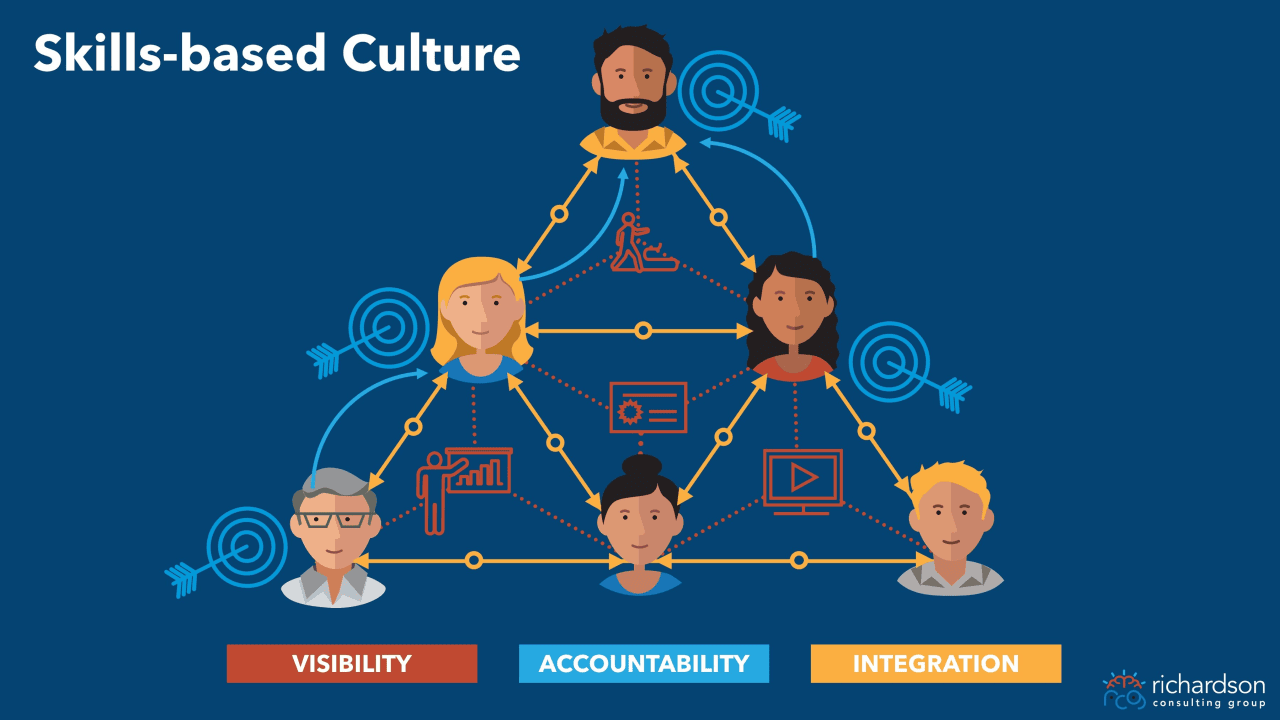
On August 13, 2025, 33 HR, Talent, and Learning leaders came together to discuss how to activate and sustain a skills-based culture.
While some organizations are making progress, the majority remain in the foundational stage of skills culture maturity — with none yet fully integrated or optimized.
This recap captures the top insights, examples, and challenges shared by your peers, along with practical steps to move from insight to action.
Discussion Highlights
Where Leaders Stand Today
10% Reactive – No awareness of skills-based approaches.
45% Foundational – Initial awareness of skills-based approaches.
45% Aligned – Skills-based mindset emerging.
0% Integrated – Skills integrated into organizational culture.
0% Optimized – Skills-driven culture fully embedded.
Real-World Examples
LEGO Group: Prioritizes 20 company-wide core skills (e.g., problem solving, design thinking) for all new joiners before introducing technical skills. Uses peer groups, campaigns, and journeys to build these foundations.
JPMorgan Chase: Faced “learning overconsumption,” with employees taking thousands of training hours annually. Solution: strengthen manager-employee conversations to set skill development priorities.
Hiring for Potential: Some companies now encourage applicants to apply if they meet 80% of requirements, reflecting recognition of skill adjacencies and the potential to grow into roles.
Top Challenges
Manager Engagement for Skill Development – Particularly difficult for clinical/frontline roles; requires proactive manager prioritization.
Overcomplication – Excessive or renamed skill taxonomies confuse stakeholders and slow adoption.
Skill Decay – Rapid tech changes make some technical skills obsolete (e.g., Excel evolving with AI).
Granularity – Striking the right level of skill definition (task-level for frontline, broader for knowledge work).
Technology vs. Process – Implementations driven by vendor capabilities can misalign with business needs.
Advice and Best Practices
Focus on Business Value: Skills efforts should target outcomes, not just cataloging skills.
Simplify and Prioritize: Identify 3–5 critical skills per role instead of 50+.
Manager Engagement: Ensure leaders make time for employee development.
Hire for Potential: Evaluate adaptability and transferable skills alongside current capabilities.
Durable Skills First: Communication, collaboration, critical thinking, and creativity remain valuable despite AI disruption.
Process Before Tech: Define business and people processes, then select technology to support them.
Learning that Sticks: True skill development requires practice, feedback, and coaching—not just content consumption.
Notable Quotes
Brian R. – “Skills are not about skills—they’re about creating business value. Behaviors make culture visible.”
Elizabeth – “Too much learning without alignment can be as problematic as too little. Managers must govern time and priorities for skill development.”
Priyanku – “We start with 20 core skills—like problem solving and critical thinking—before technical skills. This foundation helps new hires succeed without overwhelm.”
William S. – “Graduates face a catch-22: employers want experience, but without it, it’s hard to get started.”
Newton M. – “Five years of Excel experience means nothing unless we define the competencies required. Operational definitions matter.”
Kim G. – “Stop renaming skills for the sake of novelty. Data literacy is data literacy—consistency helps us move forward.”
Elizabeth – “Skills may not change, but the way we teach them—and the reasons why we need them—do.”
